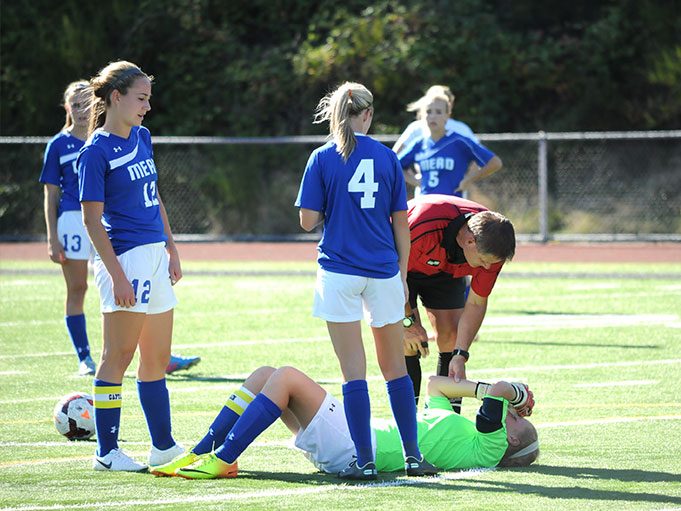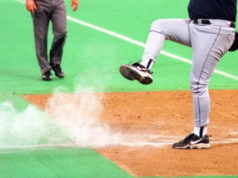There’s a scramble for a loose ball. Before the ball is secured, the referee hears a scream. One of the players is lying on the court and writhing in pain. Now what? It is always difficult to prevent injuries, but you should handle them properly. Some player injuries can get you in a lot of trouble; you can even end up in court. Here are a few tips on what to do when a player is injured.
Try not to miss the injury
The player isn’t going to be any less injured because you saw him or her get hurt, but lawsuits are occasionally rooted in emotions. Players, coaches and parents are often less angry when an official appears vigilant in recognizing and responding to an injury. Those less angry people may be less inclined to sue. I am familiar with lawsuits against gym directors and even coaches who weren’t paying attention and missed an injury (the gym director and coaches won — so we can all breathe more easily). It’s not a stretch to see officials being sued for a lack of vigilance (in fact, there have been some lawsuits that addressed how officials called games). Vigilance and the appearance of competence solve a lot of problems.
Know the rules on when to stop a game for an injury (particularly those related to concussions or suspected concussions)
People are highly unlikely to sue an official for enforcing the rules properly. If they do, there’s not much an official can do and the official is probably going to win the suit anyway.
Don’t be a prisoner to the rules if an extreme emergency occurs
If a player clearly has a serious condition such as a heart attack and the rules don’t provide for an immediate stoppage of play, well — the rules should be bent. You’re probably never going to see a heart attack during your game, but do you really want to be in court explaining that you let a player suffer from a heart attack because his or her team didn’t have possession of the ball? Of course, the flip side of the coin is that if you improperly stop play for a sprained ankle, you’re really not doing your job properly.
An official probably shouldn’t treat the injured player
In the wake of an injury, an official has some responsibilities that may not be discharged well if the official is treating an injury. An official doesn’t want to explain to an assigner, a judge or his or her partner why he didn’t monitor angry players who started a fight in retaliation for a rough play because the official was tending to a bloody nose. Remember, in most states, coaches are required to be first aid and CPR certified. Coaches and athletic trainers can handle the routine injury. An official doesn’t need to treat an injury unless the official is a medical professional treating a non-routine injury.
An official should know whether the player can return and under what circumstances
Many sports have special provisions for unconscious players, bleeding players, whether timeouts can “buy” an injured player into the game and whether timeouts must be called for injured players.
Donald C. Collins, executive director of the San Francisco section of the California Interscholastic Federation, is a longtime basketball official and lawyer. This material is for informational purposes only and is not legal advice.
What's Your Call? Leave a Comment:
Note: This article is archival in nature. Rules, interpretations, mechanics, philosophies and other information may or may not be correct for the current year.
This article is the copyright of ©Referee Enterprises, Inc., and may not be republished in whole or in part online, in print or in any capacity without expressed written permission from Referee. The article is made available for educational use by individuals.

















